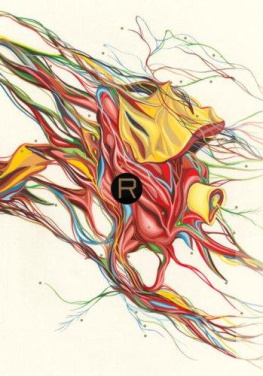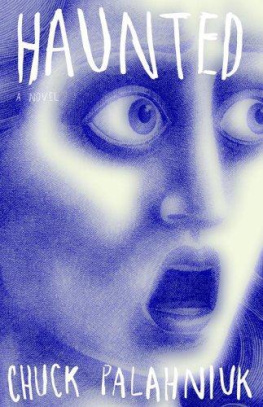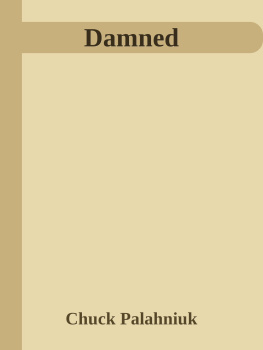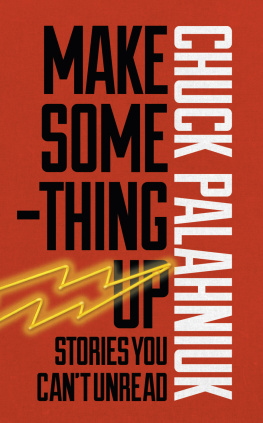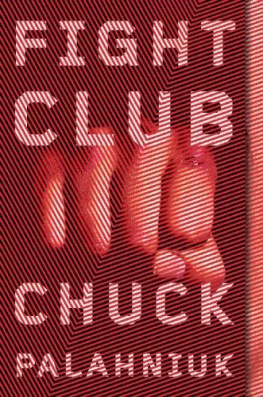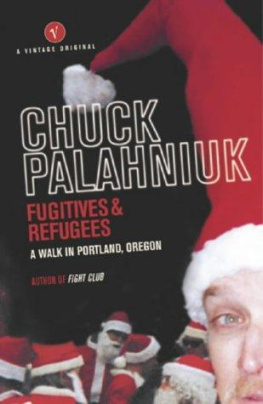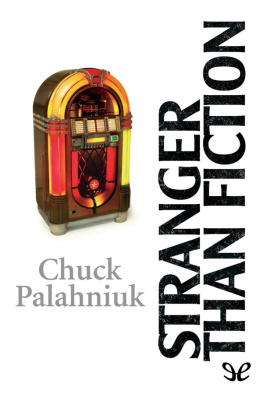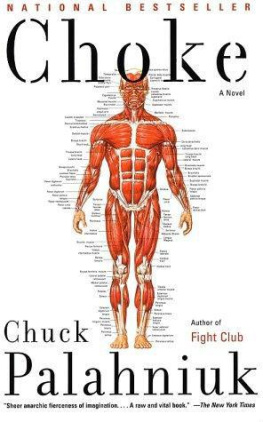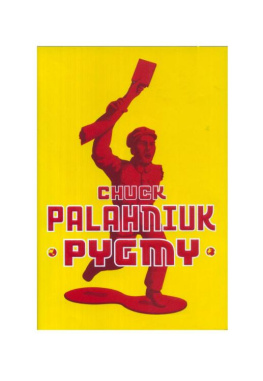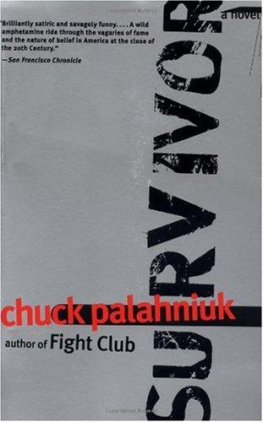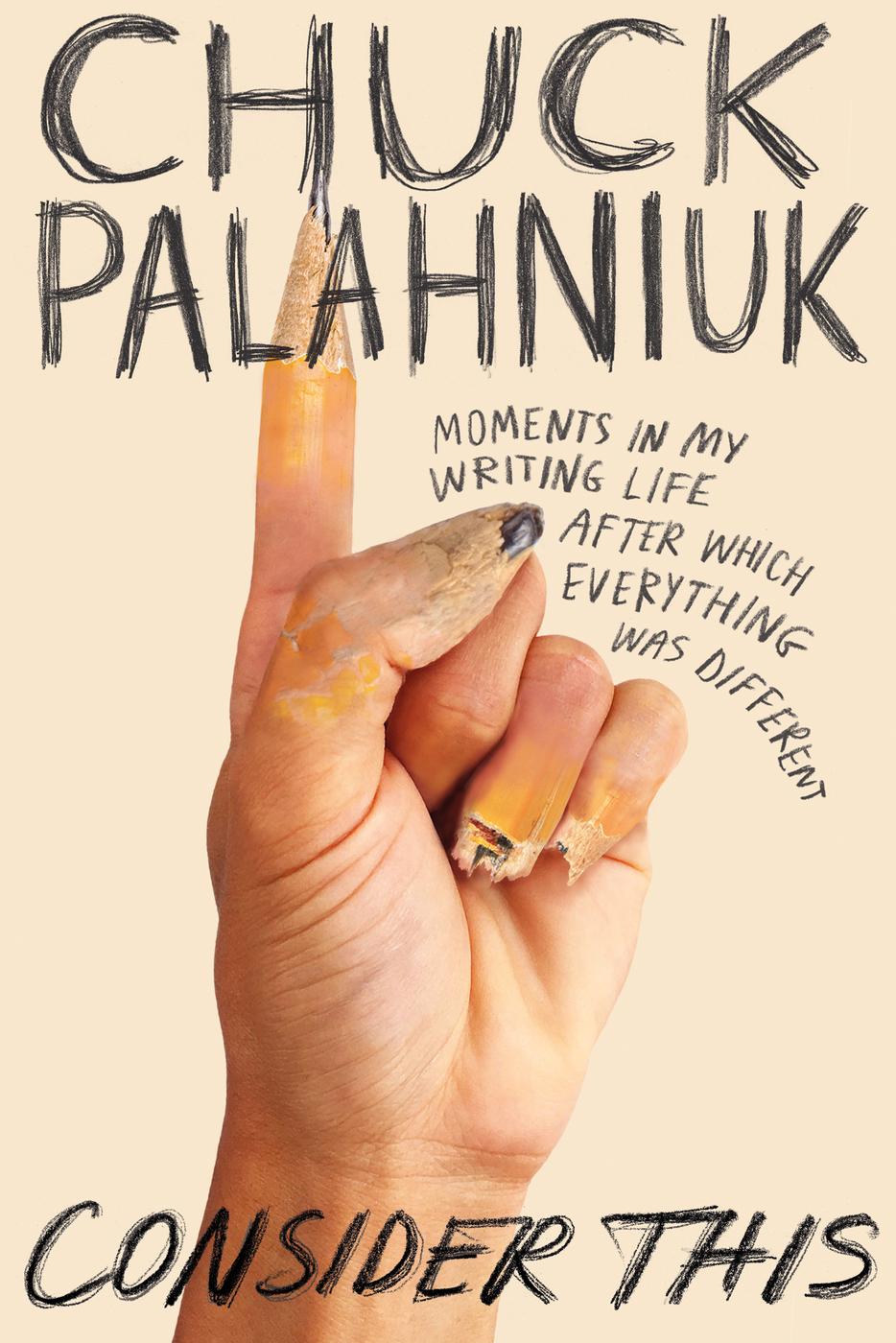This book contains the best advice and stories of many brilliant people. Most are credited, two are not. Those two are Wes Miller, who edited the manuscript for Grand Central; and Scott Allie, who edited the manuscript a year before Wes saw it, and later arranged for the tattoo illustrations. What works here works with their considerable help.
A second helping of my appreciation goes out to Sara Reinhart for helping manage the illustrations, and to the artist Toby Linwood at Tattoo 34 in Portland. Dont just get inked, get Toby.
F or most of my life I havent balanced my checkbook. The result was too depressing, to find out how little money Id saved. What little the years of my life had amounted to.
So long as my checks cleared, Id no interest in figuring down to the penny how poor I always was. For the same reason, Ive put off writing a book on writing. I didnt want to be faced with how little I could offer on the subject. How stupid I remained after all this time and practice.
My education consists of a kitchen-table MFA, earned sitting around Andrea Carlisles kitchen, then Tom Spanbauers kitchen, then Suzy Vitellos and Chelsea Cains. My program began in 1988 and continues to this day. Theres no graduation ceremony and no diploma.
The first writing workshop I joined was Andreas, and it consisted of nice people. After a couple of years Andrea took me aside. That week Id submitted a scene depicting a young man who struggled to complete sex with a slowly deflating sex doll. A scene Id eventually use in my novel Snuff, fifteen years later. On behalf of the other writers Andrea told me I wasnt a good fit for the group. Due to my fiction, no one felt safe around me. As consolation she suggested I study with another writer, Tom Spanbauer. Hed recently moved to Portland from New York.
Tom. Toms workshop was different. We met in a condemned house hed bought with plans for renovation. We felt like outlaws just by violating the yellow UNSAFE DO NOT ENTER notice stapled to the door. The previous owner had been a recluse whod lined the interior with sheets of clear plastic and kept the air constantly warm and misted so he could grow a vast collection of orchids. The house had rotted from the inside out, leaving only a few floorboards that could still support a persons weight. The writer Monica Drake recalls the first time she arrived for a class there and found that all the porches had collapsed. She wandered around the outside, stumped as to how to reach any of the doors that hung high above the junky, overgrown yard. For Monica that impossible leap over broken glass and rusted nails has always stood for the challenge of becoming a professional writer.
About the yard, Tom told us that cutting the blackberry canes and carting away the heaps of garbage would bond us as a team. It wasnt enough to arrive with manuscripts for review. We should also spend our weekends digging up the jagged soup cans and dead cats and carting all of these to a landfill. What did we know? As twenty-somethings we played along, and Tom made us soggy tuna fish sandwiches for lunch. His actual workshop sessions were more conventional, but just slightly. If we found ourselves stuck creatively he might break out the I Ching coins or refer us to his favorite psychic in Seattle. He brought in writers, among them Peter Christopher and Karen Karbo, who could teach us what he could not. What took place was less a class than it was a dialogue. And thats what Id like this book to be: a dialogue. This isnt just me telling you this. To give credit where its due, this is my teachers and their teachers teachers, going back to the caveman days. These are lessons that daisy-chain into the past and the future. They should be organized and curated, by me or by someone.
Still, Im torn.
One factor pushing me to write this book is a memory of The Worst Writing Workshop Ever. It was taught by a West Coast editor who solicits students by mail. His glossy pamphlets tout him as a sort of Editor to the Stars, listing the legendary dead writers he claims to have groomed from sows ears into silk purses.
The grooming costs each aspiring student several thousand dollars, payable weeks in advance. The Editor to the Stars swans into the host city for a three-day weekend, staying in a luxury hotel and teaching in a hotel conference room. Needless to say, the only people who can afford his rates are wealthy. Mostly theyre the wives of wealthy men, with a couple of tenured college professors thrown into the mixand me. At each of our three sessions students assembled, read their work, and waited. Everyone looked to the Editor to the Stars, who would sigh deeply and ask us to comment on the work in question.
This strategy allowed the other students to feel smart while it ran out the clock. Opinions flew, but not much practical advice. Usually no practical advice. Opinions collided, and the cross talk ate up more time. During this heated gabfest, the Editor to the Stars was updating his own mailing lists, glancing at messages on his phone, nodding sagely.
In the final moments of debate, the Editor would weigh in with some variation of, This amusing piece shows a great deal of sensitivity, you should expand it into a novel. Or, Your work is as promising as [insert some dead writer the Editor claims to have discovered and nurtured to greatness: Hemingway, Faulkner, Harriet Beecher Stowe]. Please keep at it.
Lots of hand-holding. Loads of flattery. By Sunday afternoon each of his twenty-five students had gotten a nice pat on the head but no useful information. And the Editor to the Stars left town forty thousand dollars richer.
After witnessing that racket Id resolved to write a book. Someday. A tough-love manual with more practical information than a dozen price-gouging writing gurus would typically provide. Still, Im conflicted.


